feb 18, 2023
Avanish Sahai
Avanish Sahai is a highly accomplished professional with a strong background in technology and business. Currently serving as a Senior Product Manager at Amazon Web Services (AWS), he is known for his strategic thinking and innovative approach to product development. Avanish has a proven track record of delivering successful products and driving business growth. Prior to joining AWS, he worked at companies like Microsoft and Qualcomm, where he gained valuable experience in product management and software development. Avanish holds a Bachelor’s degree in Computer Science from the Indian Institute of Technology (IIT), Kanpur, and a Master’s degree in Business Administration from the Indian School of Business (ISB). His passion for technology and his commitment to excellence continue to drive his success in the tech industry.
One Line Life Lessons from Avanish
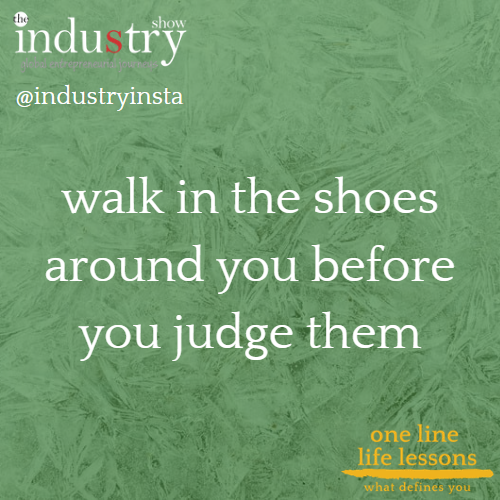
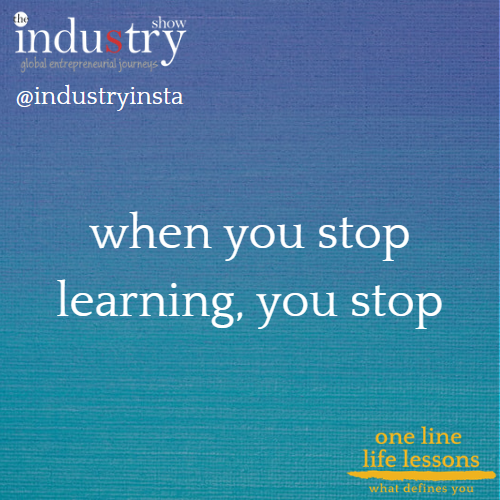
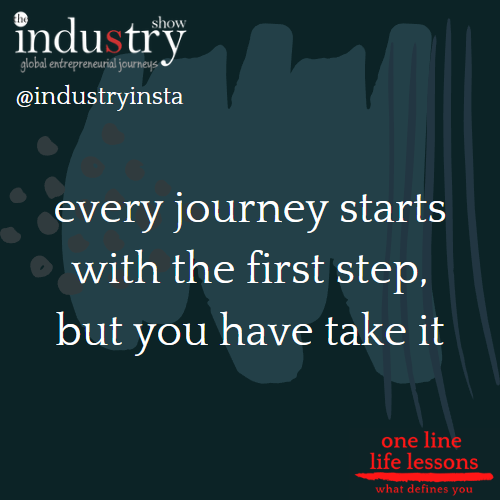
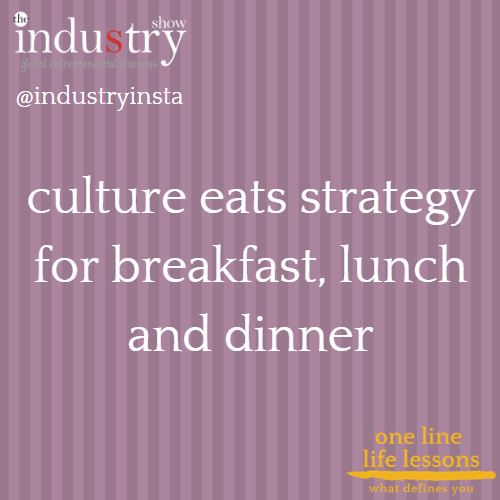
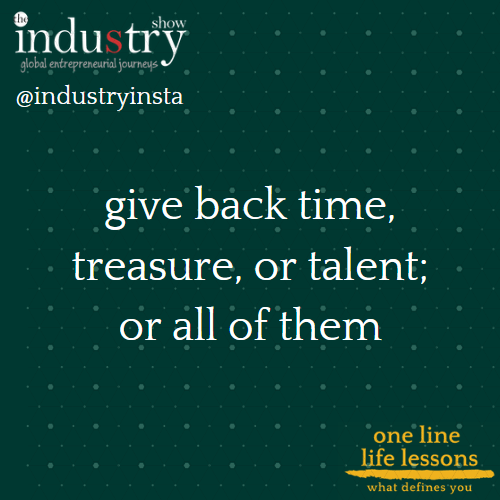
Episode Highlights
- (0:00:00) – Nitin Bajaj welcomes Avanish Sahai
- (0:00:13) – Avanish is a retired tech executive who has had nine careers
- (0:01:19) – What gets me up every morning is the notion of giving back
- (0:04:30) – The idea is to match impacted employees with training and reskilling
- (0:08:05) – You hinted at several mistakes, several lessons on entrepreneurship
- (0:11:11) – I would love to hear your advice on life lessons
- (0:14:12) – Avanish, thank you for taking time and being with us today
Show Transcript
Transcript - Full Episode
Nitin Bajaj: (0:00:11) – Pleasure is all ours. So let’s start with who is Avanish?
Avanish Sahai: (0:00:16) – So I am a India born Brazil, raised us, educated it, retired tech executive. And I would say I’ve had nine careers in my tech lifecycle. Engineer, product manager, management consultant, marketer, BD and partnerships leader, CEO, founder, entrepreneur and boaNitin Bajaj: (0:00:00) – Hey, everyone. Welcome to the INDUStry show. I’m your host, Nitin Bajaj. And joining me today is Avanish Sahai. Avanish, welcome on the show.
Avanish Sahai: (0:00:09) – Hey, Nitin, great to see you and thanks for having me.
rd member and advisor. But that’s not relevant. What’s relevant is, personally, I try to be a good husband, a good father, a good son and a good person.
Nitin Bajaj: (0:01:00) – I love how you put things in perspective in, what, 45 seconds?
Avanish Sahai: (0:01:04) – That was, you said less than a minute.
Nitin Bajaj: (0:01:10) – I love the simplicity, I love the humility. And it wouldn’t be an exaggeration to say you’ve been there, you’ve seen it all. I’m curious to learn what gets you up, gets you all excited, gets your blood and energy going every day.
Avanish Sahai: (0:01:29) – Well, Nitin, so for 30 plus years, I work in the hustle and bustle of tech and so on. And as I mentioned, I am retired now. Right. So I don’t have a day job. And as part of that, what gets me up every morning is the notion of really giving back and making a difference. And I think of that in kind of three different fronts. So, one is family. Helping my family, extended family, go through some challenging times, make some difficult decisions, et cetera. And I think that’s part of our culture and kind of our mindset is that’s important. Two, what I call community. I’ve been in different roles and I’ve built a network of people who I think some of the lessons I’ve learned, for example, building platforms and partnership ecosystems and so on, there’s a lot of lessons learned. There’s a lot of mistakes that I made that I would love for them to avoid making. So how do I capture that and help the community learn from my mistakes? Right. So that’s number two. And around that, I’ve built a new podcast kind of like yours called the platform journey, which has been a really fun exercise. And that’s one of the things I’m giving back to the community. And then third is society. So how do we help address a gap around reskilling employees impacted by things like automation, outsourcing, offshoring? So we recently launched a nonprofit initiative called Collective Careers to bring together an ecosystem of employers, training services, and impacted communities around the US. To help them figure out what can their next career look like. So that’s where I’m spending my time on.
Nitin Bajaj: (0:03:30) – Very exciting. And I love your definition of retirement.
Avanish Sahai: (0:03:37) – It’s retirement in quotes.
Nitin Bajaj: (0:03:42) – You could essentially write a check to someone and let them do this. Why do this yourself? And more importantly, why now?
Avanish Sahai: (0:03:54) – Look, I think I have benefited from being, have done well. The economy has been, the tech sector has been great for a number of us, but I do believe it’s never too early to help others. And I’ve been wanting to move into this mode for quite some time. And this was the right time, right place, right circumstance. We hope we have a few more years to have the energy and the pocketbooks to give back. Right. So to me, this just felt like the right time to kind of bring it all together.
Nitin Bajaj: (0:04:30) – If I were to ask you, when we are doing our corporate careers, we talk about revenue size, scale growth, but I think given the work you have been doing, the question I would like to ask you is the impact you’ve been able to create.
Avanish Sahai: (0:04:51) – Yeah. So we’re in the beginning of this journey. So I would love to answer that question, both from the point of view of what we hope to aspire to do, and then maybe we reconnect in some time and kind of see how we’re doing. Right. So right now the idea is to build an ecosystem of employers, training providers, prospective employees, to match those impacted employees with training and reskilling to help them find what we call a family sustaining job, a family sustaining career. We’ve hired a full time leader to run this initiative under the umbrella of India, which is the organization where we met. And now we’re really kicking off the process of recruiting the first training providers, the first employers. So right now, I would argue that success is that we have launched, and I think we’re convincing people that this is an important initiative. A year from now, three years from now, five years from now, you want to measure in the tens of thousands of jobs that are being created and careers that are being launched, where this initiative is helping identify those who are impacted, what kind of skills do they need, and ultimately landing in this new career.
Nitin Bajaj: (0:06:12) – Love that. And as you’re going through this journey and even as you’re doing the discovery process and bringing partners together, what’s coming across as the one big challenge?
Avanish Sahai: (0:06:28) – Yeah, look, everybody, and I do mean everybody, right? Whether they’re a large organization, whether the government agency, whether they’re a services provider, their biggest challenge is time is attention. So for us, I think the biggest challenge we face is getting with the right people, ensuring that this is something that’s relevant and important and a part of their priorities, and then engaging with them to figure out how we can work together. By the nature of it, it takes some time.
Nitin Bajaj: (0:07:07) – True. On the flip side, you kind of hinted at this, but would love to hear the most exciting opportunity that’s coming at you.
Avanish Sahai: (0:07:19) – Yeah, look, I kind of said it already, but it is just to reiterate, right, I think it’s giving tens of thousands of people the hope and the opportunity for a new career again. And this is really important in a family sustaining approach. This is not about getting someone a gig to be a doordash delivery person or an Uber driver or something. This is really, hey, again, in the US, a career is how you get your healthcare, it’s how you get your benefits, how you get all these other things, and you need that family sustaining job. So it’s really important to think about this from a medium to long term perspective, that how do you kind of have that kind of impact.
Nitin Bajaj: (0:08:04) – As we look forward? I want to look back a little bit, and you hinted at several mistakes, several lessons. I’d like for you to share a specific one. And on the flip side, something that I know you don’t do a lot of, but I would urge you to share one of your success stories, something that blew your own expectations. And I would love for you to brag just a little bit.
Avanish Sahai: (0:08:32) – Well, look, on the mistakes, there’s so many. But one that stuck with me was my first tech startup, and this was around the time of what I now can correctly call the first boom and bust in the early 2000s. Extremely well funded company by some of the top names in venture capital and so on. Turns out we were not as judicious with how we spent our money or our investors money, and the company did not really survive. We sold it to a competitor for cents on the dollar. And that was a lesson in how do you, again, as an entrepreneur, as a business leader, how do you think about resources and priorities and what to do and what not to do? And by the way, that lesson is pervasive in anything we do, right? How do we just, like, we budget at homes. So that was definitely a lesson learned. And if I’d go back in time, I would redo that one. On the success. The easy answer again, and you’ve got to know me a little bit. So I’ll say the easy answer is having two successful, empathetic kids who are now young adults, who are now kind of getting out into the workplace themselves, and they both have a passion for making a difference. So I think I consider that the biggest success any one of us can have on the professional front. I think some of the work we did as a team at Salesforce in building a SaaS partner ecosystem in the late 2009, early 2010 time frame, nobody really knew what that could be. There was no benchmark. There was nobody else who was doing it. And that business grew to about a billion and a half dollars in total revenues for the ecosystem in about five years. That was a feeling of helping entrepreneurs build their business, get off the ground, be successful, and that made us very proud.
Nitin Bajaj: (0:10:55) – Those are some massive numbers, but as you said, what’s more important is raising kids with the right values and getting them ready for this world. So lots to learn from you on that.
Avanish Sahai: (0:11:09) – Thank you.
Nitin Bajaj: (0:11:11) – Now, I would love to transition to what’s my favorite part of the show. We call it the one line life lessons. And I would love to hear your life lessons.
Avanish Sahai: (0:11:24) – Look, this was probably, as I was prepping for this was probably the most fascinating, also the most challenging part. But let me share a few and a bit of context around each. So one, I mentioned giving back, and in giving back, give back time or treasure or talent, and better yet, all of them. So to me, that, I think, is an important mindset that all of us should have. Two, and I’m a former management consultant in strategy particularly, and I have to say this one, culture eats strategy for breakfast. You’ve heard that. I also think it eats it for lunch and dinner. And the more I’ve been around the workspace, the more places, the more I realize how critical that is. So forming that culture, being kind of thoughtful about how to really bring in those values and how you make decisions and so on, is unbelievably critical. Third, every journey starts with the first step. We’ve all heard that. But you have to take it. And I think often people hesitating, taking that step and taking a bit of the risk or whatever that may be, take the risk. The next one is when you stop learning, you stop. And I think to all of us who have grown in our careers through education, personal development, et cetera, that should never stop. No matter if you’re the CEO of a large organization, no matter if you’re running a nonprofit, no matter what you’re doing, the minute you stop learning and you stop kind of driving new lessons for yourself, things will go, will grind to a halt very quickly. And then finally, and this is, I think, an important one in the context we’re living in around the world, which is walk in the shoes of those around you before you judge. We have this ability to make snap judgments and opinions. We never know what’s happening to someone else. And until you walk in their shoes, that empathy, don’t judge them.
Nitin Bajaj: (0:13:50) – Love that. Especially the last one. So true. And I’ve been guilty of that, especially as when you have a little bit of the young blood on you, you’re very eager to jump to certain conclusions. So I’ve been guilty of that many a times myself. So that’s a good reminder.
Avanish Sahai: (0:14:08) – Thank you for sharing that. I mean, again, it’s all of us. It applies to all of us.
Nitin Bajaj: (0:14:12) – Avanish, thank you so much for taking time and being with us today, to share your journey, to share your life lessons. I would love for you to come back and knowing you, I know it won’t be five years. You’ll be there probably in six months. So would love to get you back on and talk about how many of those, I would say 15 of those 10,000 that you’re aiming for, you’ve already checked off. So would love to bring you back on and talk about more of your successes.
Avanish Sahai: (0:14:43) – Well, thank you for the kind words and for the confidence and for having me. I really enjoyed our conversation.



